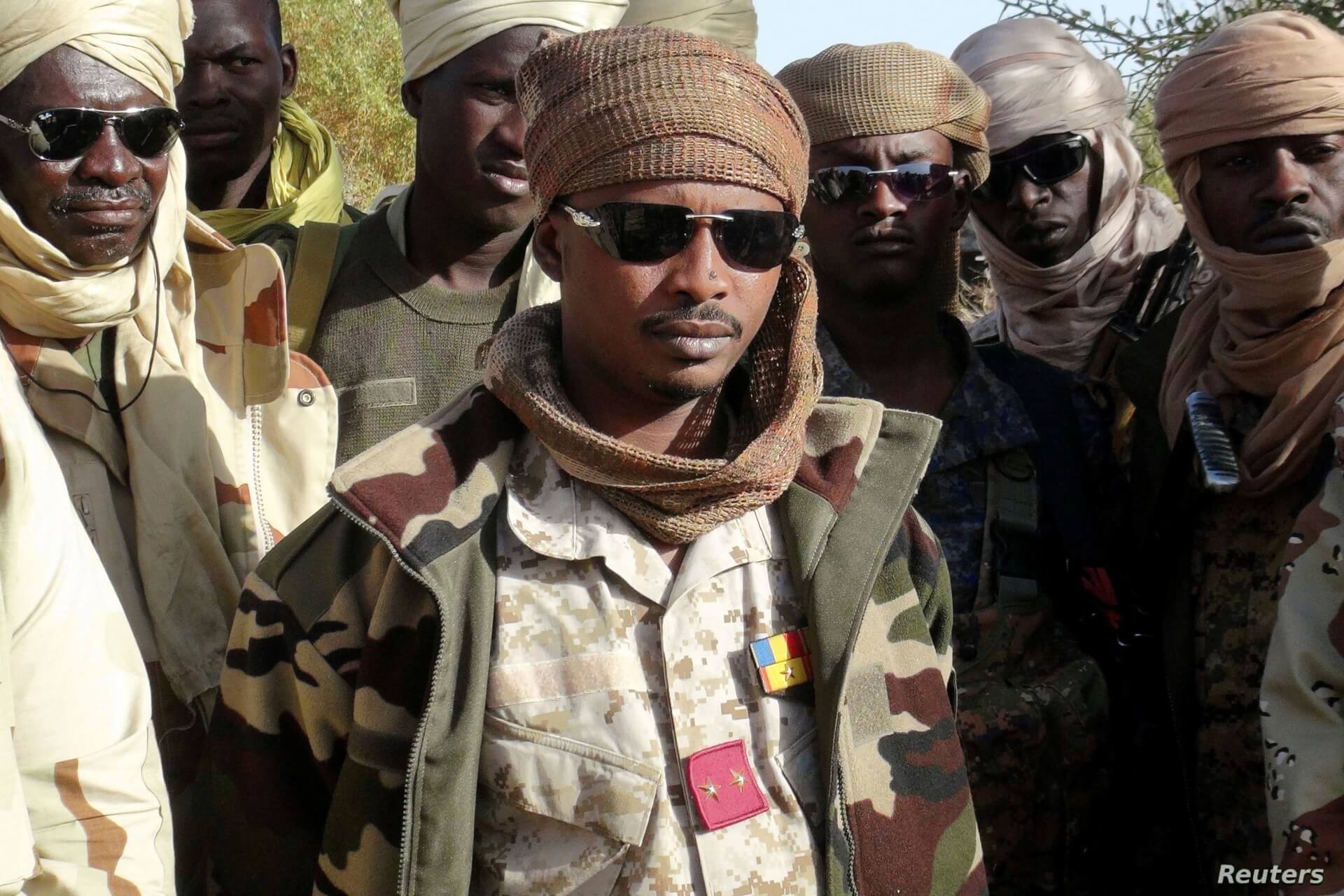Chad’s military-led transitional government, which came into power following the death of ex-President Idriss Déby on the frontlines of a battle with insurgent rebels last week, has rejected the possibility of dialogue with the rebels. The transitional military council is in fact led by Déby’s son, General Mahamat Kaka, who will head the government for 18 months before restoring it to civilian rule.
The current crisis first began following the presidential election on April 11, when Idriss Déby was declared victorious with over 80% of votes and secured a controversial sixth term in office. Following his victory, there was a giant insurgency of rebels from Libya who began advancing towards the capital N’Djamena. Although the military and the government both claimed on multiple occasions that the rebel offensive had been defeated, Déby’s death is a clear indication that the conflict was still very much ongoing.
Critics have denounced the decision of the military to take control of the government, saying that it is unconstitutional. As per the terms of Chad’s constitution, the speaker of the parliament should have taken over the leadership for 40 days before another election was held. However, the military has instead dissolved the legislative assembly and completely overridden the constitution.
Against this backdrop, military spokesperson General Azem Bermandoa Agouma has now said, “Faced with this situation that endangers Chad and the stability of the entire sub-region, this is not the time for mediation or negotiation with outlaws.”
In fact, rather than negotiate with the Front for Change and Concord in Chad (FACT) rebels, the military has instead said that it would hold their leader, Mahamat Mahadi Ali, accountable for his “war crimes”.
To this end, it has called on neighbouring Niger, where it believes the rebels are ‘regrouping’, to cooperate with Chad in “bringing [them] to justice”. Agouma said, “Chad appeals to Niger’s cooperation and solidarity under the various agreements between the two brotherly countries, in order to facilitate the capture and bringing to justice those war criminals responsible for the death of several dozen Chadian soldiers, including the first of them, the Marshal of Chad (President Idriss Déby).”
The rebels, however, have indicated their willingness to agree to a ceasefire. FACT spokesperson Kingabe Ogouzeimi de Tapol told Reuters: “FACT is ready to observe a ceasefire for a political settlement that respects the independence and sovereignty of Chad and does not endorse a coup d’état.”
Agouma, though, has underscored the military’s disinterest in both dialogue and a ceasefire, saying, “They are rebels, which is why we are bombing them. We are waging war, that’s all.”
To give the transitional council semblance of legitimacy, the council did announce that Albert Pahimi Padacké, who was the runner-up in the recently-held election, had been appointed as the new Prime Minister (PM). In fact, Padacké previously served as PM from 2016 to 2018 under President Déby. The position of PM in the country is essentially ceremonial, however, and the true power rests with the presidency, which is now effectively controlled by General Mahamat Kaka.
Opposition parties have rejected Padacké’s appointment, as he is widely seen as a Déby ally. In fact, Yacine Abderamane, the president of the Reformist Party, said, “It is not up to the transitional military council to designate a prime minister in this isolated manner. We want there to be talks between political parties, civil society and other actors in order to reach a consensus.”
The African Union’s Peace and Security Council, too, expressed “grave concern” about developments in Chad and called for civilian rule to be restored. The appointment of Padacké as PM and the transitional council’s rejection of dialogue with the rebels, however, indicates that this is a slim possibility.
Chad Military Names Election Runner-Up Padacké as New PM, Rejects Dialogue With Rebels
Military spokesperson General Azem Bermandoa Agouma has said, “This is not the time for mediation or negotiation with outlaws.”
April 27, 2021

The leader of Chad’s new military-led transitional government, General Mahamat Kaka, who is the son of the now-former President Idriss Déby SOURCE:
